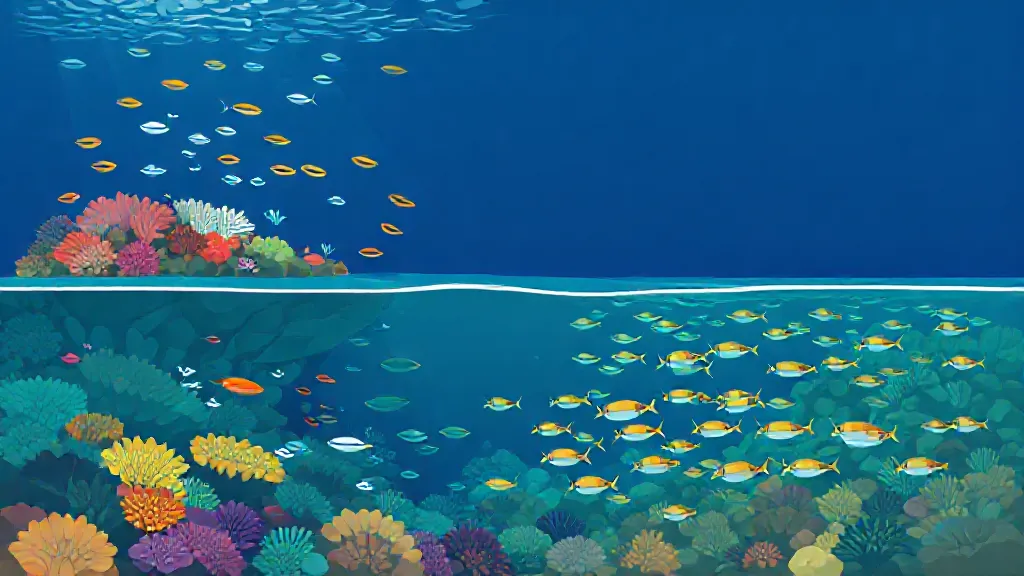Overfishing is a pressing global issue that threatens the health of marine ecosystems and the livelihoods of millions of people who depend on the ocean for their sustenance. The phenomenon occurs when fish and other marine species are caught at a rate faster than they can reproduce, leading to a significant decline in their populations. This article delves into the multifaceted effects of overfishing on oceans, examining its ecological, economic, and social implications.
The Decline of Fish Populations
One of the most immediate effects of overfishing is the drastic reduction in fish populations. Species such as cod, haddock, and tuna have seen their numbers plummet due to unsustainable fishing practices. According to the Food and Agriculture Organization (FAO), approximately 34% of global fish stocks are overfished, with many others being fished at their maximum capacity.
This decline disrupts the balance of marine ecosystems, as each species plays a critical role in maintaining the health of the ocean.
Impact on Marine Biodiversity
Overfishing does not only affect targeted species; it also has a cascading effect on marine biodiversity. The removal of large predators, such as sharks and tuna, can lead to an overabundance of smaller fish and invertebrates, resulting in an unbalanced ecosystem.
This shift can alter habitat structures, such as coral reefs, which rely on a diverse range of species to thrive. The loss of biodiversity diminishes the ocean's resilience to environmental changes, making it more vulnerable to threats like climate change and pollution.
Economic Consequences for Fishing Communities
The economic ramifications of overfishing extend beyond the marine environment.
Coastal communities that rely on fishing for their livelihoods face significant challenges as fish stocks dwindle. Jobs in the fishing industry are at risk, and local economies suffer from decreased fish availability. The decline in fish populations can also lead to increased competition for resources, driving prices up and making it difficult for small-scale fishers to compete with larger commercial operations.
The Role of Bycatch in Overfishing
Bycatch, the unintentional capture of non-target species during fishing, is another critical issue associated with overfishing. Many fishing methods, such as trawling and longlining, result in the death of countless marine animals, including sea turtles, dolphins, and seabirds. This not only contributes to the decline of these species but also disrupts the food web and ecological balance.
Efforts to reduce bycatch through more selective fishing gear and practices are essential to mitigate the impacts of overfishing.
Regulatory Challenges and Solutions
Addressing the issue of overfishing requires robust regulatory frameworks and international cooperation. Many countries have implemented quotas and restrictions to manage fish stocks sustainably, but enforcement remains a challenge.
Illegal, unreported, and unregulated (IUU) fishing undermines conservation efforts and threatens the effectiveness of management strategies. Strengthening governance, promoting transparency in the fishing industry, and fostering community engagement are vital steps toward sustainable fisheries management.
The Importance of Marine Protected Areas
Marine Protected Areas (MPAs) are a crucial tool in combating overfishing and preserving marine biodiversity.
These designated zones restrict certain fishing activities, allowing ecosystems to recover and thrive. Research has shown that MPAs can lead to increased fish populations and biodiversity within their boundaries, benefiting both the environment and local fisheries. Expanding and effectively managing MPAs can play a significant role in reversing the effects of overfishing.
The Future of Sustainable Fishing
The future of our oceans depends on adopting sustainable fishing practices that balance ecological health with economic needs. Initiatives such as community-based fisheries management and certification programs, like the Marine Stewardship Council (MSC), promote responsible fishing practices. Consumer awareness and demand for sustainably sourced seafood can drive change within the industry, encouraging fishers to adopt more environmentally friendly practices.
Conclusion: A Call to Action
The effects of overfishing on oceans are profound and far-reaching, impacting marine ecosystems, biodiversity, and the livelihoods of millions. It is imperative that governments, industries, and consumers work together to address this crisis. By promoting sustainable fishing practices, protecting marine habitats, and fostering international cooperation, we can ensure the health of our oceans for future generations.
The time to act is now, as the fate of our oceans hangs in the balance.
